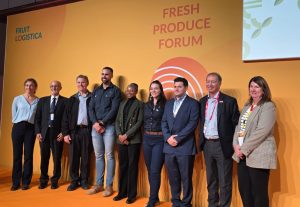The Commission’s proposal defines a new regulatory framework for the authorisation of plants derived from New Genomic Techniques (NGTs), such as targeted mutagenesis and cisgenesis, differentiating them from classic GMOs.
Under the new system, conventional-type NGT plants would be regulated in much the same way as plants derived from current methods of breeding varieties. The proposal likewise outlines a verification procedure to establish the individual regulatory status of new varieties.
It is a step forward on the path that European agriculture must travel to drive sustainability through innovation. In the case of Spain, this legislative initiative could enable it to maintain its leadership in R&D+i in obtaining new varieties, guaranteeing the safety of high-quality seeds, and supporting the transition towards a resilient and truly sustainable food system.
Numerous agri-food associations, public and research institutions, NGOs, and farmers’ organisations have expressed their support for the NGT proposal. More than thirty Nobel laureates, including CRISPR pioneers Emanuelle Charpentier and Jennifer Doudna, and thousands of scientists signed an open letter urging the Environment Committee to endorse NGTs.
Following positive votes first by the Committee on Agriculture and now by the Committee on the Environment, the proposal will be adopted by plenary vote in February.
NGT and climate change
This outcome should facilitate agreement within the Council of Ministers and allow rapid progress to be made in the three-party dialogues in order to reach a final agreement. After the Meeting of Ministers of Agriculture on January 23, Luis Planas declared that the dossier on new genomic techniques, which was one of the issues promoted by the Spanish Presidency in the previous semester, is among those that have to be implemented, “because every month that we have of regulatory delay means a loss of competitiveness for European agri-food production.”
In addition, he stressed that the application of new genomic techniques is a key issue for adapting agricultural production to climate change, and that, in effect, this legislation could mean a real change for Europe, its farmers, and consumers.

















